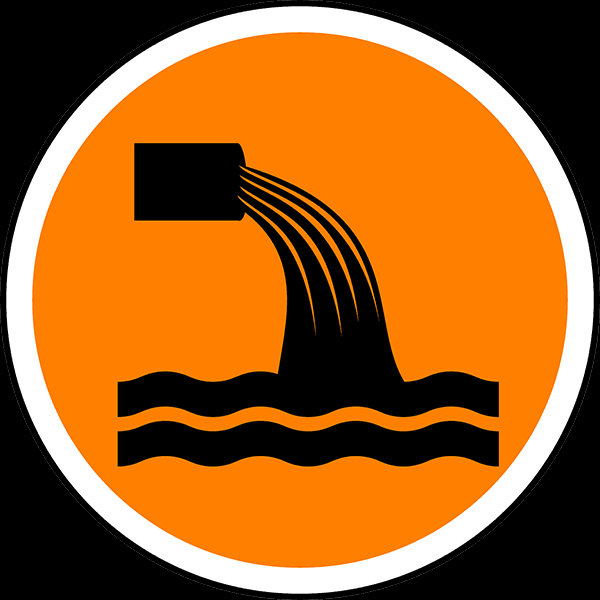Little Known Questions About Reclaim Waste.
Little Known Questions About Reclaim Waste.
Blog Article
5 Easy Facts About Reclaim Waste Shown
Table of ContentsReclaim Waste Can Be Fun For AnyoneReclaim Waste for BeginnersReclaim Waste Can Be Fun For AnyoneReclaim Waste for DummiesGet This Report on Reclaim Waste
Explore the types, events, and kinds of fluid waste. Residential sewer waste describes the waste and products from a domestic septic tank. This kind of waste is produced by people in residences, schools, and various other structures. This only includes septic tanks that have a drainpipe area. The correct management and disposal of domestic sewer waste call for liquid waste to be transferred to a sewage treatment plant where the proper methods and equipment are put on cleanse and throw away waste.
Commercial waste commonly includes potential dangers, such as flammable materials or a blend of liquid and solid waste products, and needs a more innovative and detailed disposal procedure. The disposal of industrial waste commonly entails the purification of waste prior to transportation to make sure secure and appropriate disposal. Hazardous waste is produced from by-products and runoff of industrial processes and manufacturing.
This kind of waste can not utilize the same sewer monitoring transport or procedures as septic or commercial fluids. The industrial waste administration process requires the assessment and screening of fluid waste before it goes through the disposal procedure (liquid waste removal). Runoff waste is the liquid waste that comes from runoff and excess stormwater in very booming areas or cities
Overflow waste can create contamination and flooding if not dealt with correctly. Making sure proper waste management can protect against calamities and decrease environmental harm.
Fascination About Reclaim Waste
Get in touch with PROS Solutions today to learn more about our waste monitoring and disposal solutions and the proper ways to care for the fluid waste you generate.
(https://www.tripadvisor.in/Profile/reclaimwaste1)Do you understand what takes place to your water when you end, purge the toilet or drain pipes the cleaning device? No? Well, it's worth recognizing. This so-called 'wastewater' is not only a crucial source but, after therapy, will certainly be launched to our land, waterways or the ocean. Made use of water from toilets, showers, baths, kitchen area sinks, washings and commercial procedures is called wastewater.

water used to cool machinery or tidy plant and tools). Stormwater, a type of wastewater, is drainage that streams from farming and city locations such as roofs, parks, gardens, roadways, courses and rain gutters into stormwater drains, after rainfall. Stormwater moves without treatment directly to local creeks or rivers, eventually getting to the ocean.
The smart Trick of Reclaim Waste That Nobody is Talking About
In Queensland, a lot of wastewater is dealt with at sewer treatment plants. Wastewater is transported from residential or industrial websites via a system of drains and pump terminals, known as sewerage reticulation, to a sewer treatment plant.
The Department of Natural Resources advises city governments about managing, operating and preserving sewage systems and treatment plants. In unsewered areas, local federal governments might call for owners to install individual or home sewer treatment systems to treat domestic wastewater from commodes, kitchen areas, shower rooms and washings. The Division of Natural Resources authorises using household systems when they are proven to be efficient.
In some new class, therapy of some stormwater to eliminate litter, sand and crushed rock has started making use of gross contaminant traps. Wastewater treatment takes place in four stages: Gets rid of strong matter.
Utilizes small living organisms recognizes as micro-organisms to damage down and get rid of continuing to be dissolved wastes and fine fragments. Micro-organisms and wastes are integrated in the sludge.
Some Known Details About Reclaim Waste
Nutrient removal is not available at all sewer therapy plants due to the fact that it requires pricey specialized equipment. Clear fluid effluent generated after treatment might still include disease-causing micro-organisms - liquid waste removal melbourne.

This usually means wastewater has actually to be treated or impurities gotten rid of before it can be released to waterways. A lot of wastewater flows into the sewage system. Under the Act, city governments administer approvals and permits for ecologically appropriate tasks (Periods) including wastewater releases that might have a local impact. The division administers approvals and permits to Ages involving wastewater launches that may have a regional or statewide impact.
Reclaim Waste for Beginners
Monitoring gives factual info regarding water top quality and can verify that permit problems his explanation are being satisfied. The information obtained through surveillance provides the basis for making water quality choices.
Report this page